Few gestures can get your dog’s tail wagging more than surprising them with a new chew toy. Chew toys are great for keeping your dog entertained while promoting chewing habits that support their health and wellbeing. Although chewing is a natural and necessary canine behavior, not all chew toys are created equal, and some can do more harm than good. Our Livingston Veterinary Hospital team identifies safe and unsafe chew toys and explains how you can ensure your dog’s chew toys are safe.
Benefits of chew toys for dogs
Chew toys provide your dog with myriad benefits that support their physical and mental health. Consider these healthy chewing benefits:
- Supports dental health — When your dog eats, their mouth’s bacteria combine with food particles to form a sticky film (i.e., plaque) on their teeth. If the plaque is not removed within a few days, the substance hardens into cement-like tartar, trapping bacteria in and around the gumline. Over time, plaque and tartar can damage a tooth’s supporting structures and lead to serious dental disease. Fortunately, chewing helps break down the teeth’s plaque and tartar buildup.
- Provides mental stimulation — Dogs need more than physical exercise to stay healthy. They also need mental stimulation, and chewing on a toy requires concentration and focus, which keeps your pet’s mind sharp.
- Relieves stress — You may meditate or focus on your breath to relieve stress, and chewing provides a similar soothing effect for your dog. Chewing causes a dog’s pituitary gland to release endorphins into the brain, producing a calming effect.
- Decreases problem behavior — Dogs have a natural urge to chew. When your dog chews a toy, they satisfy this instinctual urge, and they don’t need to chew your shoes, furniture, or other inappropriate items. Providing a variety of safe chew toys can help keep your dog engaged and reduce the likelihood they will develop destructive habits.
How to choose a safe chew toy for your dog
Various types of chew toys are available, and identifying the safest choice for your dog can be difficult. Ensure that the chew toys you give your dog match their chewing style (e.g., gentle, moderate, powerful) and evaluate a chew toy’s following characteristics:
- Size — A chew toy that is too small for your dog’s mouth can cause them to choke. Look at the weight chart on the toy’s packaging to determine the best size for your dog.
- Hardness — An extremely hard chew toy can fracture your dog’s teeth. Follow this rule of thumb: If you can’t comfortably tap a toy against your knee without it causing pain, the toy is probably too hard for your dog.
- Washability — Chew toys quickly become unsanitary, so you should ensure you can clean and disinfect the toys you give your dog.
Unsafe chew toys for dogs
Certain chew toys pose a serious injury risk to dogs. When searching for your pooch’s ideal chew, avoid the following:
- Bones, antlers, and hooves — These tough chews can fracture your pet’s teeth, or pierce their gums and gastrointestinal (GI) tract if the chew breaks into small shards.
- Rawhides — Despite their popularity, rawhides pose many risks. The chemicals used to treat the animal hides can be hazardous to your dog’s health, and bacteria can coat rawhide surfaces. Rawhides are often high in fat, which may cause your dog GI issues. As your dog chews rawhide, it becomes pliable and slimy, and your pet can easily swallow the product, which can then lodge in their throat, stomach, or intestinal tract.
- Sticks — Many dogs are experts at finding and proudly showing off sticks, but these items can seriously injure your pet. Wood splinters and shards can damage your dog’s teeth and surrounding soft oral tissues. In addition, these small pieces can lodge in your dog’s esophagus or intestinal tract, causing widespread infection or a blockage.
Safe chew toys for dogs
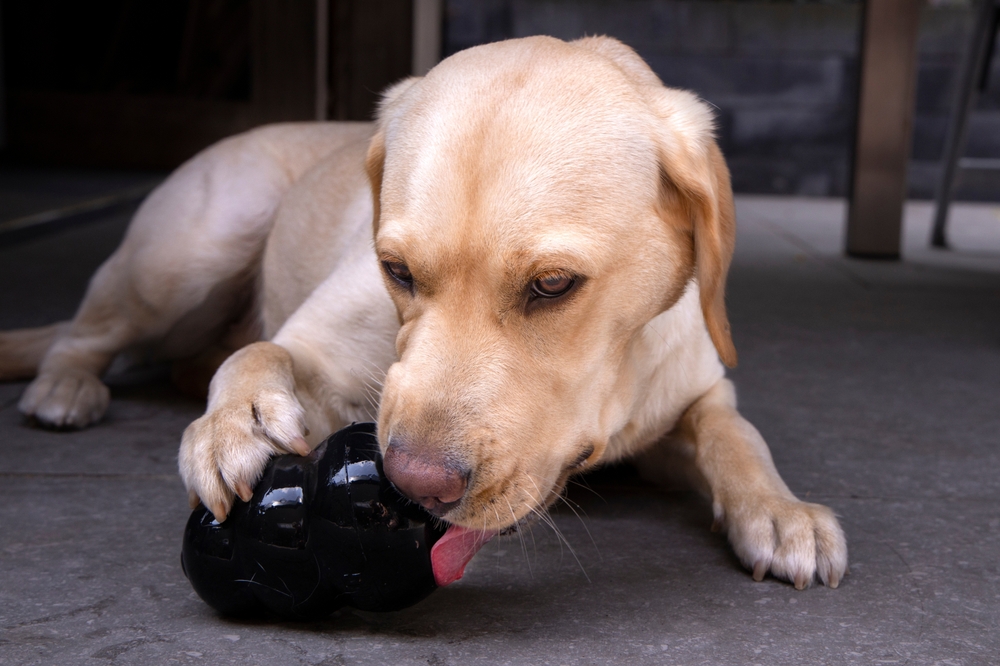
While no toy is completely safe, your dog can enjoy many healthy, digestible, and appropriate chews. Consider these safe chew toys for your dog:
- Rubber Kongs — Rubber Kongs are durable enough that your dog is unlikely to gnaw off pieces, but not so hard that they harm your dog’s teeth.
- Veterinary Oral Health Council (VOHC)-approved chews — VOHC-approved chews are tasty and benefit your dog’s oral health. VOHC awards their seal of approval to dental treats and chews that have been proven to slow plaque and tartar accumulation on pets’ teeth.
If you need help determining the safest chew toys for your power chewer, or you’re concerned about your pet’s dental health, schedule an appointment with our Livingston Veterinary Hospital team.
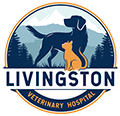

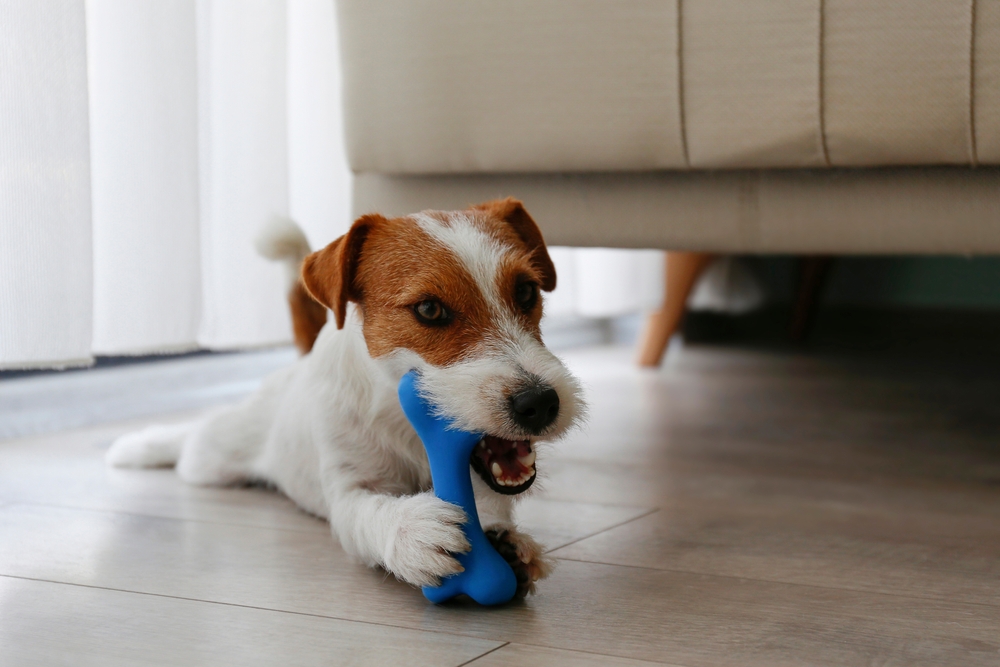
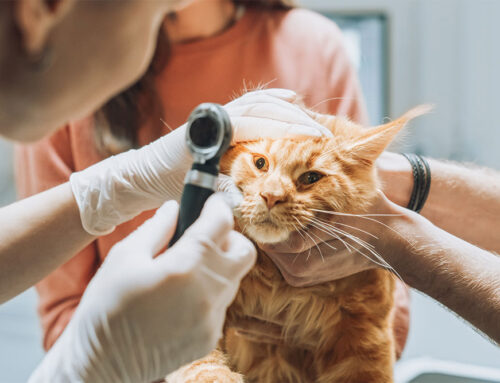

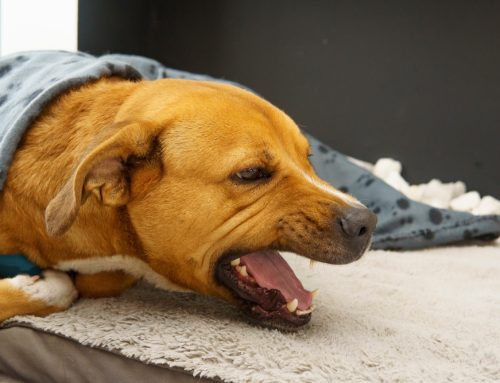

Leave A Comment